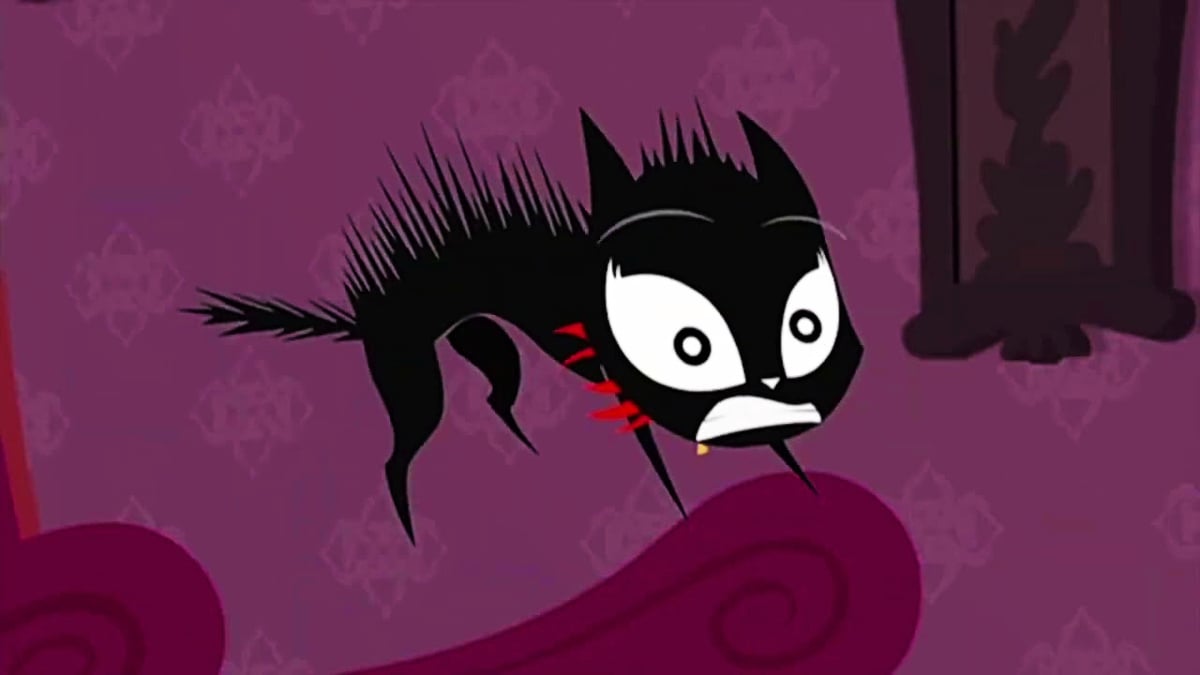The mystique of black cats skyrockets exponentially whenever Halloween is around the corner, and one question always seems to pop up: Why is it considered bad luck when one of them crosses your path?
This superstition, among other fears surrounding black cats, are so real to some people that it has resulted in their low adoption rates from shelters in the U.S. These fantastic felines shouldn’t suffer just because we humans don’t understand our history, so it’s time to break down this old myth once and for all, and clear their good names!
The association of black cats and the occult began in medieval Europe

Historically speaking, a lot of the bad rap black cats have gotten can be blamed on two people: Pope Gregory IX, and a medieval German priest named Konrad von Marburg. In 1233, Pope Gregory IX issued a decretal — a letter from a pope that formulates decisions in how the Catholic Church governs itself — describing an alleged cult uncovered by Marburg whose practitioners worshipped a demonic man whose “lower part is shaggy like a cat,” and a black cat statue that would come to life.
Of course, the fact that Marburg threatened to burn people at the stake if they refused to confess to a crime could have, possibly, maybe, I don’t know, extremely pressured people into making up stories so they didn’t literally burn to death. Despite Marburg’s evidence being considered controversial even back in those days, this piece of medieval nightmare fuel, disseminated by the literal pope, helped spread the idea that black cats were associated with cults, satanists, and witches far past its origins in Germany, until the black cat slander spread across all of Europe.
Who, exactly, wants to cross paths with a devil, witch, or some other evil horror? People decided “rationally” that black cats’ bad mojo extended even to their being sent out to do these evil forces’ bidding. If you thought a witch had sent an evil being to potentially enact some sinister spell upon you, you’d run away too, right? Tragically, papal bad press, plus the bizarre notion that black cats spread the bubonic plague, resulted in the deaths of many innocent kitties, and of the people who took care of them.
But black cats aren’t considered bad luck everywhere

Despite these suspicions against black cats starting up in Europe, and spreading from there to colonized parts of the New World, there were places even in Europe where cats could be considered to be good luck. In France, many people believed that if black cats were treated well, that they would not only bring good fortune, but might even lead them to treasure. A similar belief became common in Scotland, where finding a black cat on your doorstep meant money was quickly coming your way.
Tired of the dating scene, and how annoying all those dating apps can be? Take a page out of Japan’s book, and adopt a black cat! Not only do they supposedly help single women increase the number of suitors knocking at their door, but they also are supposed to bring good luck and fortune to boot!
So why do people want to believe in superstition, anyway?
Look, we all know deep down that these fluffy voids of darkness aren’t actually evil, just the beloved level of annoying we have come to expect and love in cats. So why do people want to still throw them under the bus, anyway? The honest answer seems to be stress. Even more strangely, believing in superstitions has even been shown to be beneficial, in certain circumstances.
In an article from the International Journal of Psychology and Behavioral Sciences, researcher Fatik Baran Mandal discusses discoveries related to humans and our superstitious behaviors. “Superstition produces a false sense of having control over outer conditions, reduces anxieties, and is prevalent in conditions of absence of confidence, insecurity, fear and threat, stress and anxiety,” he wrote. “Superstition gives an illusion of control to overcome stressful situation and provides performing enhancing ability to students and athletes.”
Of course, the minor benefits of superstition quickly vanish when they begin harming people’s lives — or the lives of innocent animals around them. While it’s fun to have a bit of a goofy time around spooky season when it comes to black cats, let’s remember that they have to live with our weird human behaviors the rest of the year, too. Give them all the love they deserve, and don’t treat them badly just because certain medieval folks gave them a bad rep!











Published: Oct 26, 2023 12:36 pm